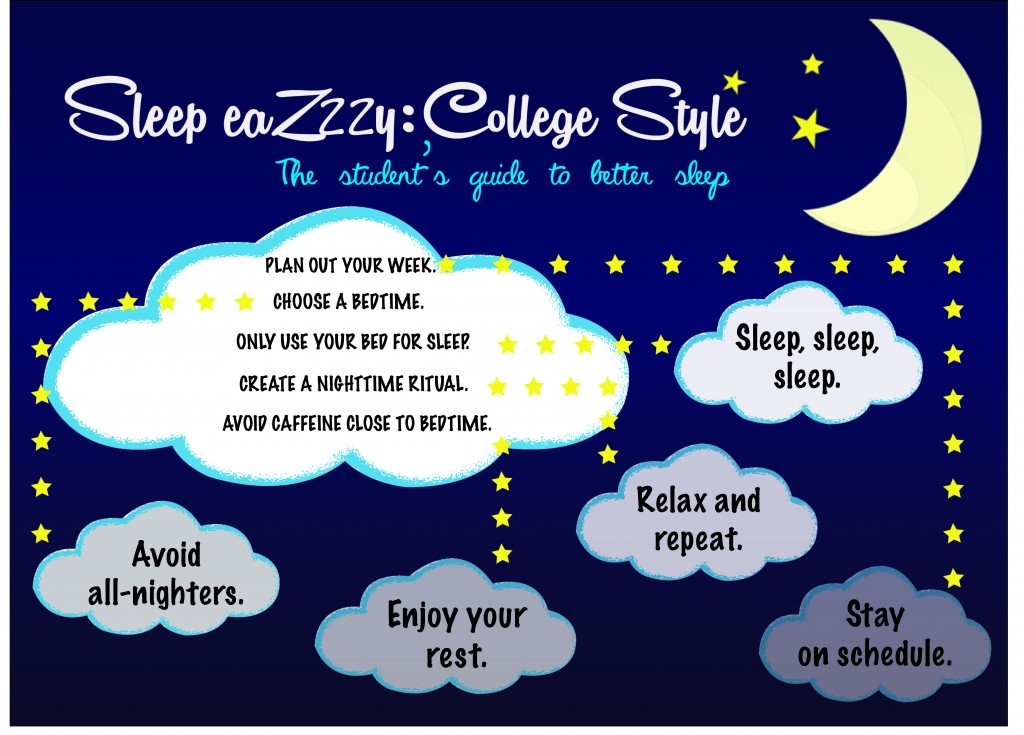It’s 4:30 a.m. the night before – make that morning of – a major exam, and you’re still up cramming for the test…we’ve all been there; welcome to the life of a college student. There is nothing like a little procrastination when you are a student struggling to balance your social life along with a full school and work load, but at what point do our bad habits turn into actual health risks?
Sleep deprivation is, not surprisingly, very common among college students. As a student, it is easy to assume you will be more successful if you stay up all night to finish all of your assignments and/or crash study enough for an exam, but the question is not just whether or not you actually make better (or passing) grades following this horrible process, but at what cost to your health?
Without sleep, students become groggy and unable to perform normal everyday activities as well as they usually would be able to. They begin to reach for anything to get them through the day, whether it’s a venti caramel macchiato with an extra shot of espresso, an extra large Red Bull or, in desperate times, an Adderall that you’re not even prescribed.
It has now become a fairly common practice to take Adderall or other forms of so-called “smart drugs” in order to not only stay awake, but also as a way to retain information before an exam. These drugs tend to make users think they are actually smarter by unleashing dopamine and producing a mild sense of euphoria; basically it makes you feel like you are capable of just about anything. (Who wouldn’t want that, right?) While students believe they are doing great because of the drug, studies have shown that this so-called sense of productivity is actually false. Not to mention, since when has it ever been good to take something you aren’t prescribed?
In this generation, it seems to be a common misconception that “sleep is for the weak.” It is almost as if we get a weird sense of pride when we tell fellow classmates we pulled an all-nighter or are running off of an hour of sleep. However, the effects of sleep deprivation can be far worse than one would imagine.
Not only does sleep deprivation cause memory loss and slowed reaction times, but it also leads to more serious issues such as weight gain, depression and weakened immune systems. Studies show that an inadequacy of sleep can lead to an increase in the risk of strokes, diabetes and heart disease – unnecessary risks for a test that you may not even do as good on because you are drained as a result of not getting any sleep.
Pushing through “an all-nighter” may just be pushing you into a variety of health risks. At some point, you have to ask yourself: is it really worth it? The answer to this question is usually pretty easy. Most of us know that we should get more sleep, but that is typically easier said than done.
How do we actually reach the goal of getting a good night’s rest? For a start, check out this infographic for tips on how to accomplish an earlier bedtime, and how to stay on top of your work. Say goodbye to all-nighters and hello to your new sleep regime.


